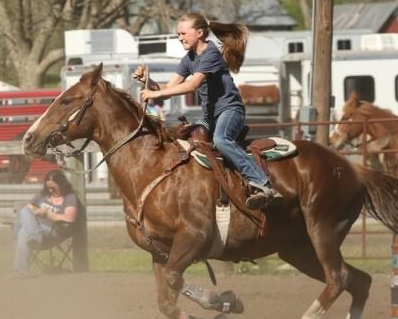Anytime horses or owners leave the farm to compete, breed, train, or go to a veterinary hospital they can be exposed to all kinds of disease agents and there is an increased risk for the spread of diseases such as Equine Herpes Myeloencephalophathy, Equine Infectious Anemia, Equine Piroplasmosis, and Equine Viral Arteritis.
Establishing and following sound biosecurity practices is the cornerstone for reducing the risk of spreading these diseases. The following are some considerations for equine owners and event organizers to consider helping minimize disease exposure.
Leaving the stable
When moving your horses, use your own trailer. Don’t ship your horse with horses from other farms.
If you must use someone else’s trailer, be sure to clean and disinfect it before loading your horse.
Don’t let your horse touch other horses, especially nose-to-nose.
Don’t share equipment (e.g., needles, water and feed buckets, brushes, or sponges).
Wash your hands after helping other people with their horses.
Don’t let other people pet your horses, especially those with horses at home or people who have been out of the country in the past 2 weeks.
Returning to the stable
You must protect the horses that didn’t travel from being exposed to new germs that can be passed from your horse(s) and you.
Clean and disinfect tack, boots, equipment, and grooming supplies before coming back.
You should shower and put on clean clothes and shoes upon your return.
If possible, keep horses that were off the farm separate from your other horses for at least two weeks. Make sure there is no nose-to-nose contact.
When doing feeding and chores, work with the returning horses last, wear booths and coveralls, and remove them before working with your other horses.
Don’t forget to wash your hands.
Adding a new horse
This is the most common way for infectious disease to enter your farm.
Sign up for HPJ Insights
Our weekly newsletter delivers the latest news straight to your inbox including breaking news, our exclusive columns and much more.
Keep new horses separate from your other horses for 30 days. Don’t use the same pitchforks, grooming tools, or feed and water buckets on any horse but the new one.
Work with the new horse last each day, or wear boots and coveralls that you can remove before working with the other horses.
Always wash your hands with soap and water, and blow your nose after working with the new horse. You could carry germs to your other horses in your nose.
Biosecurity on your farm
Park away from the horses. Doing that will help keep disease-carrying organisms from being tracked from car floors to tires to your horses.
If the farrier or veterinarian needs to park closer, be sure their tires and shoes have been disinfected.
If you have many visitors, such as at a farm tour or open house, make a footbath for them to walk through.
Making a footbath
1. A low plastic pan or bin, wide enough to fit an adult’s foot and shallow enough to step into easily.
2. A plastic doormat (the “fake grass” mats work well).
3. A disinfectant that works well for most situations, such as Tek-trol or One stroke Environ.
4. Water.
Mix the disinfectant with water according to the label instructions. Put the doormat in the plastic pan. Add the disinfectant so that the bottom of the mat is wet. Ask visitors to walk through the footbath, wiping their feet on the mat. The mat scrubs their shoes as they wipe them and applies the disinfectant. When the liquid starts to get dirty. Empty it and put in new disinfectant.
The Texas Animal Health Commission encourages horse owners to additionally consult with their private veterinarians about core vaccines to supplement the integrity of their biosecurity plans. Help protect local equine owners and the equine industry. Be aware of the factors and create a plan. This cannot eliminate the risk, but reduces the risk.
This information was provided to you courtesy of the Texas Animal Health Commission (TAHC). For more information visit www.tahc.texas.gov.


